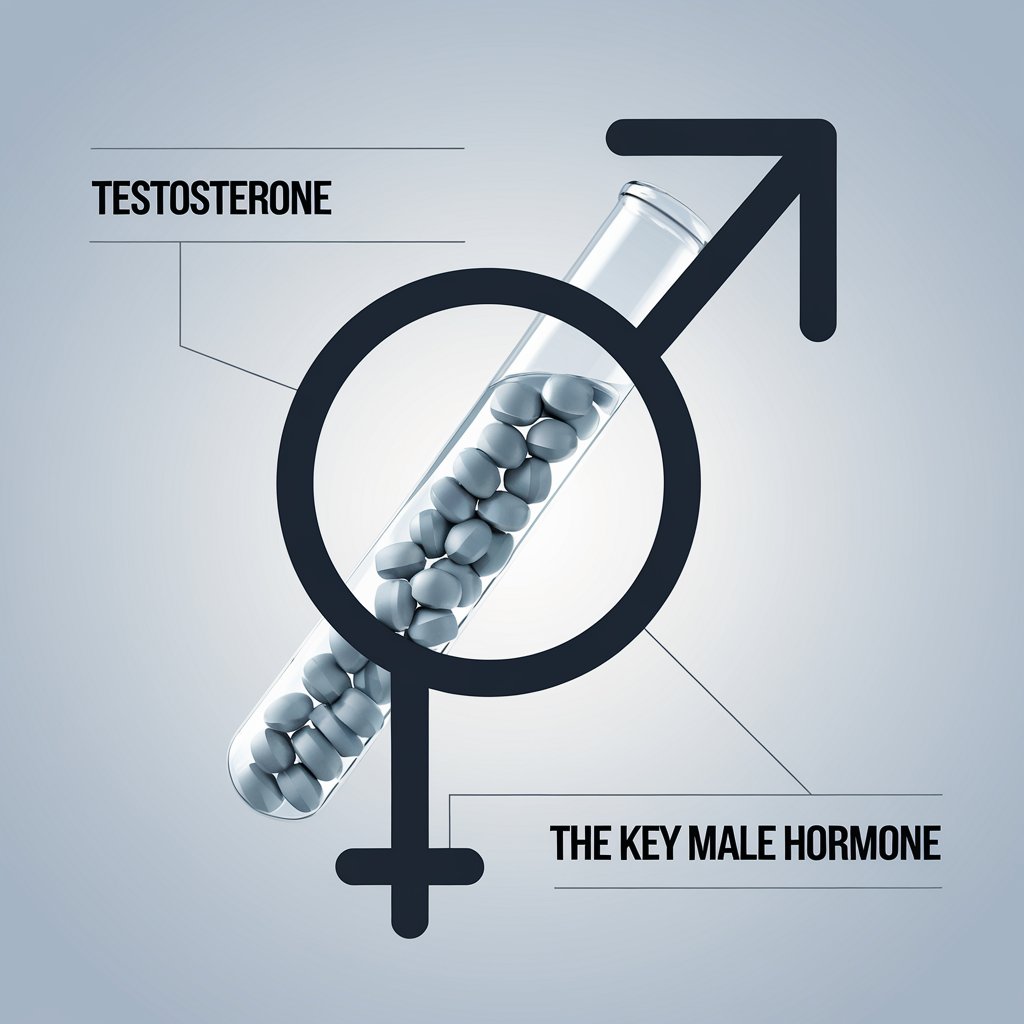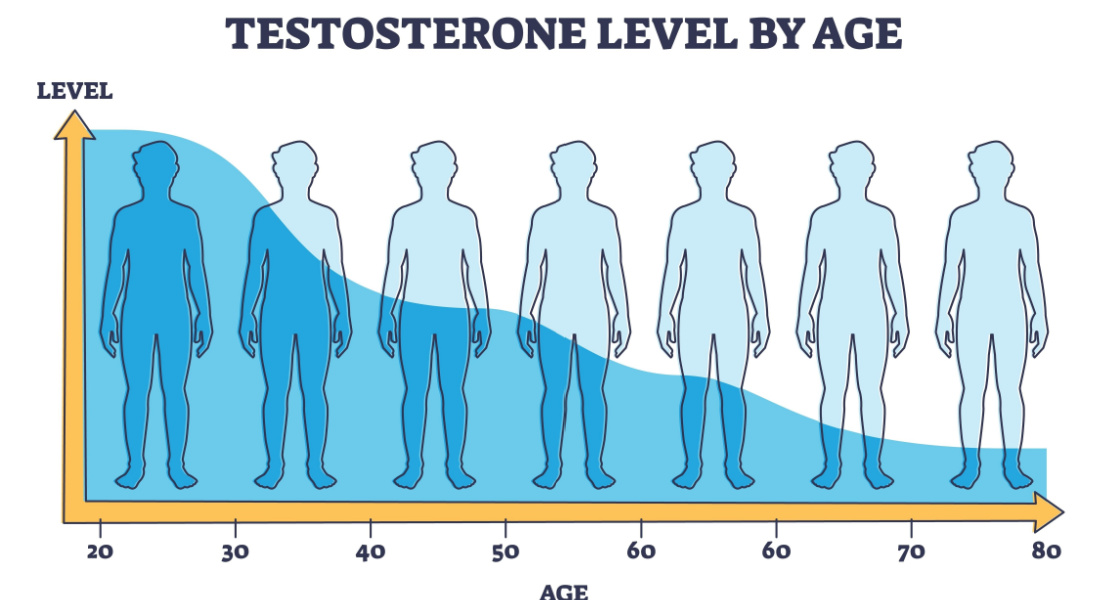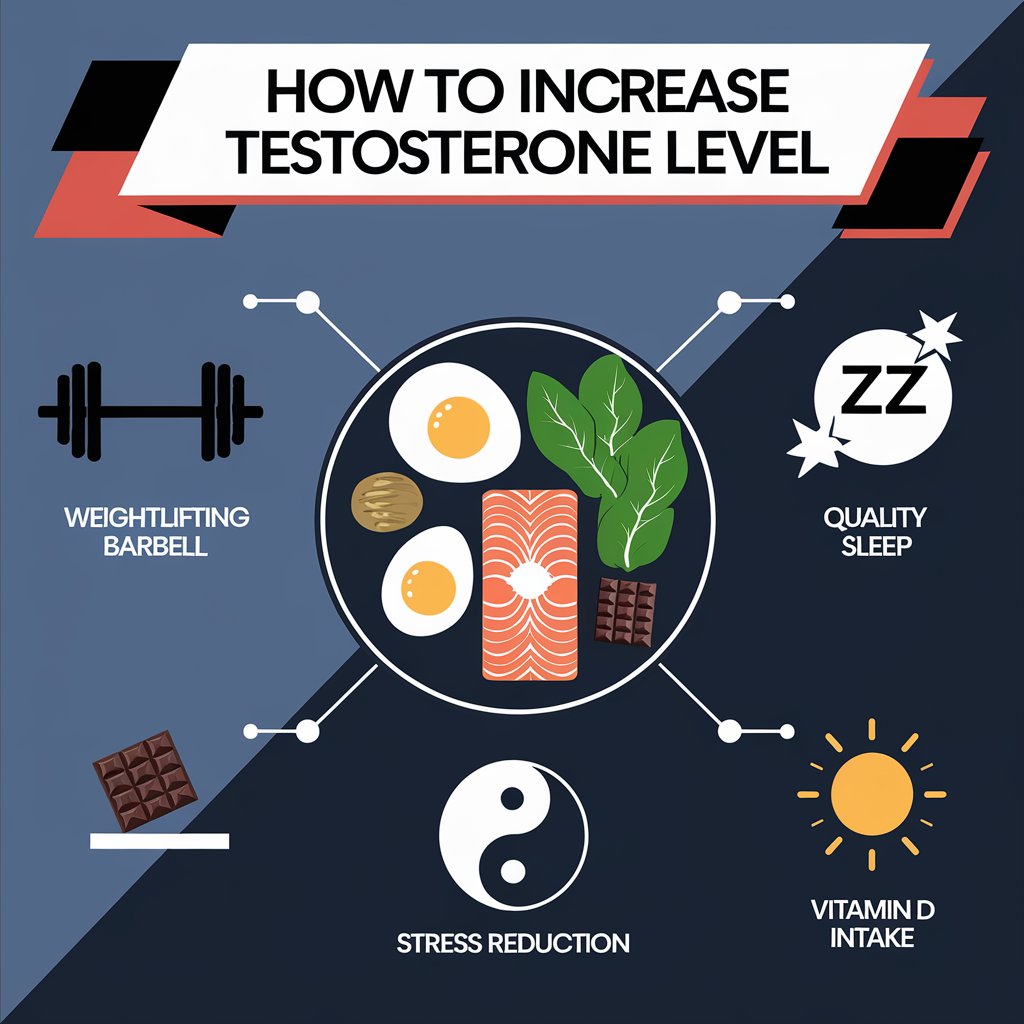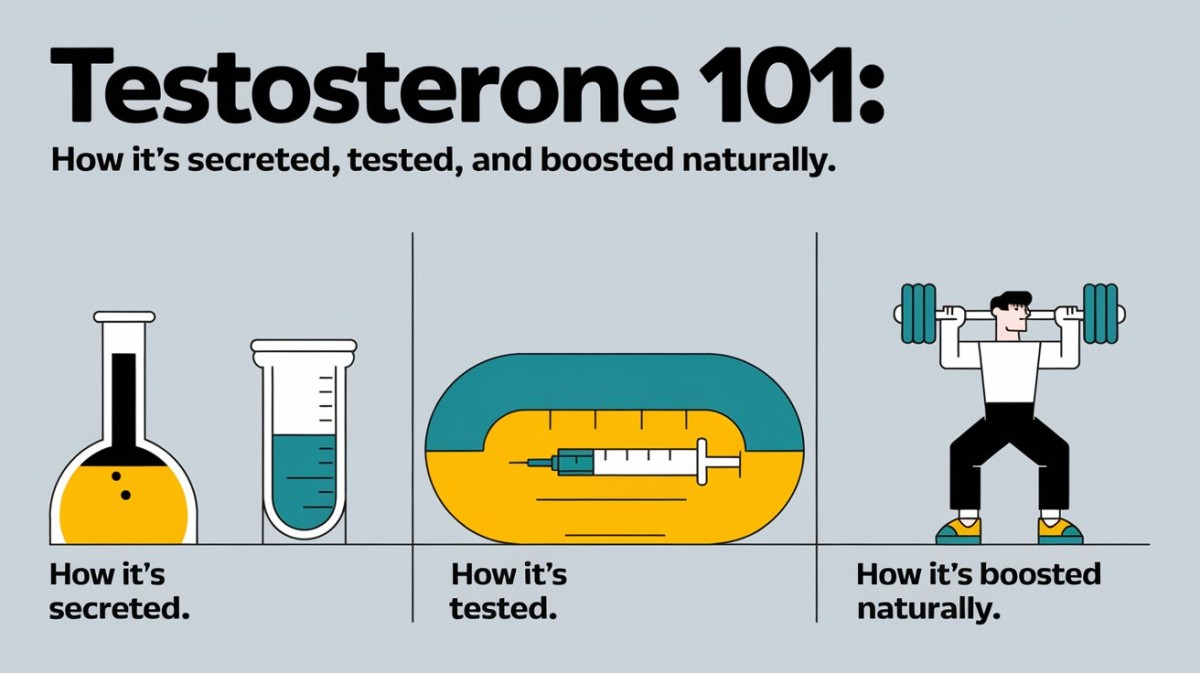Testosterone is one of the most curious and doubtful aspects of a man’s life! You might have come across numerous studies to deal with it. Are there any foods to boost testosterone naturally? Does pineapple boost testosterone? Furthermore, all of these queries will be resolved.
Understanding Testosterone: The Key Male Hormone
 Testosterone is a key male hormone that is primarily produced by the gonads, which are also called sex organs. So, most of the testosterone in males is produced by testicles, while in the case of females, the ovaries produce in smaller amounts. Also, there are adrenal glands that produce dehydroepiandrosterone (DHEA), which the body converts into testosterone and estrogen.
Testosterone is a key male hormone that is primarily produced by the gonads, which are also called sex organs. So, most of the testosterone in males is produced by testicles, while in the case of females, the ovaries produce in smaller amounts. Also, there are adrenal glands that produce dehydroepiandrosterone (DHEA), which the body converts into testosterone and estrogen.
Testosterone, being the main androgen, testosterone stimulates male characteristics. It plays a crucial role in puberty, increasing significantly during adolescence and gradually declining after age 30.
Looking a bit into the role of testosterone, it influences sex drive, sperm production, muscle and bone mass, fat distribution, and red blood cell production. It also affects mood and overall health as well.
Diving in-depth, this testosterone influences fetal development; testosterone begins shaping male reproductive tissues within the first six weeks. Fluctuations in testosterone levels can impact both your physical as well as your mental health.
Testosterone is Secreted by Which Cell?
As mentioned earlier, testosterone is produced by gonads, but it is secreted by cells called Leydig cells, which are located in the interstitial compartment of the testis, in between the seminiferous tubules. Leydig cells produce testosterone in response to luteinizing hormone (LH), which is released by the pituitary gland. This hormone signals Leydig cells to synthesize and release testosterone, playing a crucial role in male reproductive function and overall health.
Testosterone Range for Men: What You Should Know
 You might have been surrounded by too much anxiety due to testosterone issues. Some people feel embarrassed to go near a doctor, but for a better interpretation of these levels, you must visit a healthcare professional. So, testosterone levels vary by age and sex and are measured in nanograms per deciliter (ng/dL). It’s important to note that normal ranges may differ depending on the blood test method and laboratory standards. According to the University of Rochester Medical Center, Adult males: 280–1,100 ng/dL is considered to be normal.
You might have been surrounded by too much anxiety due to testosterone issues. Some people feel embarrassed to go near a doctor, but for a better interpretation of these levels, you must visit a healthcare professional. So, testosterone levels vary by age and sex and are measured in nanograms per deciliter (ng/dL). It’s important to note that normal ranges may differ depending on the blood test method and laboratory standards. According to the University of Rochester Medical Center, Adult males: 280–1,100 ng/dL is considered to be normal.
Low Testosterone
➤In adult males, levels below 300 ng/dL may prompt further evaluation, as per the American Urological Association.
➤Low testosterone can indicate pituitary gland dysfunction, as the pituitary gland signals the testicles to produce testosterone.
➤In teen boys, low levels may suggest delayed puberty.
High Testosterone
➤In men, moderately high levels may show few symptoms, but boys may enter puberty early.
➤In women, excess testosterone can lead to masculine features.
Possible causes of high testosterone:
Adrenal gland disorders, testicular cancer, congenital adrenal hyperplasia (CAH) (a rare genetic condition).
Also read - Testicular Cancer in India: How Common Is It & What You Should Know
Normal Testosterone Levels for Males
Age Range |
Testosterone Range (ng/dL) |
|
Under 1 year old |
Less than 12 |
|
1 to 5 years old |
Less than 12 |
|
6 to 10 years old |
Less than 25 |
|
11 to 15 years old |
Less than 830 |
|
16 to 17 years old |
102 to 1010 |
|
18 to 99 years old |
193 to 824 |
Testing and Diagnosis
As we got to know what is the optimum level of testosterone when you experience symptoms of high or low testosterone, your healthcare provider will allocate you certain diagnostic tests, which are mentioned below.
How to Test the Level of Testosterone Accurately
A total testosterone blood test is best performed in the morning when levels are highest.
Follicle-stimulating hormone (FSH) blood test that assesses reproductive function.
Luteinizing hormone (LH) blood test evaluates pituitary gland function.
How to Increase Testosterone Level: Effective Strategies?
 Soon after you diagnose yourself with these low testosterone levels, the doctor might suggest a few treatment measures. Here are a few natural yet effective strategies that play a crucial role in boosting testosterone levels:
Soon after you diagnose yourself with these low testosterone levels, the doctor might suggest a few treatment measures. Here are a few natural yet effective strategies that play a crucial role in boosting testosterone levels:
➤Weight lifting and high-intensity interval training are known to increase testosterone levels.
➤Have a well-balanced diet incorporated with protein, fat, and carbs.
➤Stress is known to impact testosterone levels negatively, so keep a check on your cortisol levels.
Read more on - The Impact of Stress and Anxiety on Sexual Health
➤A few studies suggest that low vitamin D is associated with low testosterone levels, which needs further research. Make sure you have adequate amounts of vitamin D in your diet.
➤Taking the advice of your doctor, you can also have zinc supplements this is because people with testosterone deficiency have seen good results with zinc supplements. There are herbal supplements such as saw palmetto, ginger, and ashwagandha for which more studies are required.
➤Do maintain a quality sleep schedule and stay far from estrogen-like chemicals and alcohol as well.
Foods That Boost Testosterone
As mentioned above, you can naturally boost the testosterone levels among that food, so here is the list of foods that will help you maintain hormonal balance:
Food |
Key Nutrients |
How It Helps Testosterone |
|
Fatty Fish (Salmon, Sardines) |
Vitamin D, Zinc, Omega-3s |
It supports hormone production and overall health as well. |
|
Dark Leafy Greens (Spinach, Kale) |
Magnesium |
Magnesium can help you regulate testosterone and reduce oxidative stress. |
|
Cocoa Products (Cocoa Powder, Dark Chocolate) |
Flavonoids, Magnesium |
Stimulates Leydig cells for testosterone production |
|
Healthy Fats, Boron, Magnesium |
Supports testosterone metabolism and prevents breakdown. |
|
|
Eggs (Egg Yolks) |
Selenium, Healthy Fats, Protein |
Enhances testosterone production via specific pathways. |
|
Berries, Cherries, Pomegranates |
Flavonoid Antioxidants |
Protects Leydig cells and reduces oxidative stress. |
|
Shellfish (Oysters, Clams) |
Zinc, Selenium, Omega-3s |
Crucial for reproductive health and testosterone levels. |
Does Pineapple Increase Testosterone?
So, pineapple alone can not contribute to healthy testosterone levels. Pineapple, along with a balanced diet, exercise, and proper sleep schedule, is necessary. Analyzing pineapple may support testosterone levels due to its bromelain content, an enzyme that could help reduce cortisol and prevent testosterone decline. It also provides you with vitamin C, which lowers oxidative stress, and thiamine, which boosts energy and stamina. Additionally, its manganese content supports reproductive health.
The bottom line:
Low testosterone isn't a panicking issue to be worried about! But you need to take appropriate measures to deal with it. Above mentioned are the widely followed steps to maintain testosterone levels and your overall well-being. However, if you are experiencing this with any underlying medical issues you need to speak with your urologist and get treated early.
